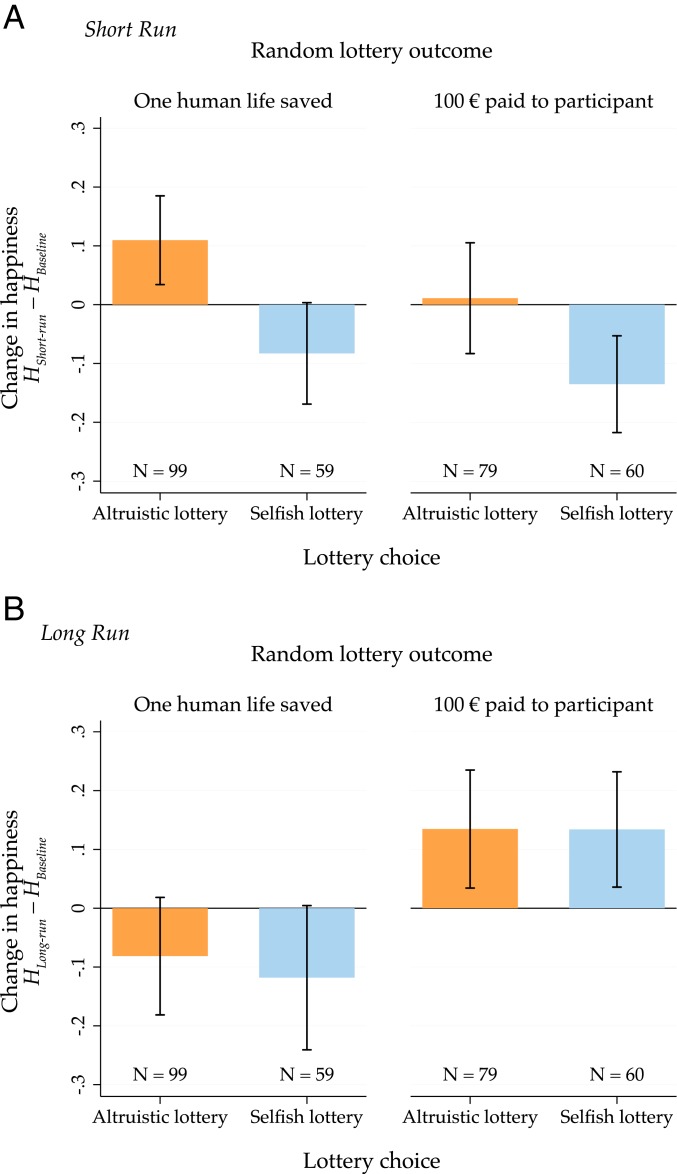Fig. 2.
Prosocial behavior increased happiness in the short run but decreased it in the long run. A shows the mean changes in self-reported happiness between the end and the beginning of the laboratory session for each of the four study groups. Regression analyses confirmed a causal main effect of saving a life (0.06 SD, < 0.1) (Table 1, column 1) and a (noncausal) positive main effect of choosing the prosocial lottery (0.14 SD, < 0.1) (Table 1, column 1). B displays mean changes in happiness after 4 wk compared with the beginning of the laboratory session. The causal effect of saving a life on happiness after 4 wk was negative and quantitatively large (−0.26 SD, < 0.01) (Table 1, column 4). Happiness scores were standardized at each point in time. = 297. Error bands indicate 1 SEM.

